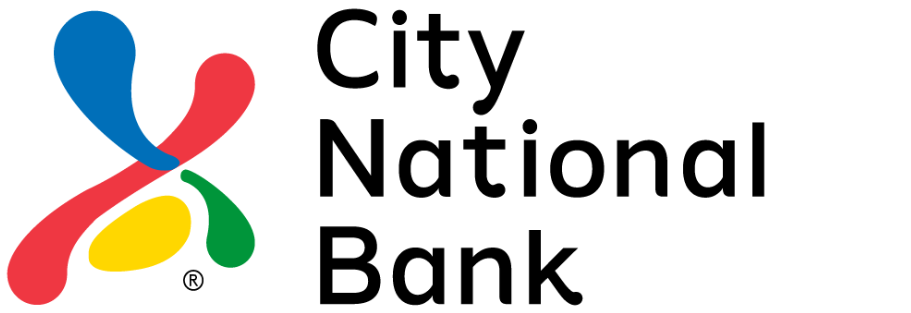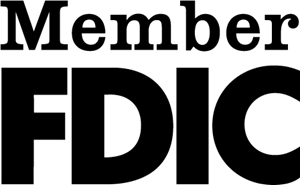Medical Financing & Loans for Medical Professionals: A Complete Guide

Dreaming of opening, purchasing, or expanding your medical practice? Whatever the reason you need to access medical practice loans and financing, it can feel overwhelming to sort through all the options—but it's important that you do your due diligence. “Medical professionals need to be able to understand the different financing options so they can make the best financial decision that aligns with the current and future needs of the practice," says Frank Nogareda, Medical Group Private Banking Director at City National Bank of Florida. But don't worry. There are tools and solutions available to move your practice forward. Below is an overview of your loan options, the pros and cons of each, and the different products that can be customized to meet your needs.
What is Medical Banking Financing?
Medical banking financing is a suite of financial products customized to the needs of medical professionals. These financing products ensure practitioners have everything they need to open, build, grow, and renew their medical practice. Medical financing can include everything from practice expansion and acquisition loans to tenant improvement, real estate, and working capital loans.
It's also important to mention that across medical professions the costs for setting up a practice are climbing, making medical financing even more critical. Doctorly estimates that the cost of launching a small primary care practice ranges between $70,000 and $100,000. Opening a dental practice? The American Dental Association found that you'll need an average of $500,000 to set up shop. If you're a veterinarian, you might see your costs near the profession's $1 million average for a new practice, according to the Independent Veterinary Practitioners Association.
Financing Options Available to Medical Professionals
Here are some of the most common financing tools for medical practitioners—along with the pros and cons of each to—help you decide which is best for you:
Business Loans
Business loans are amortized loans that you can take out to pay for a number of different types of business expenses, including things like equipment costs, construction costs, salary costs, or working capital needs. These loans are borrowed out for a specific term and can be non-secured loans or loans secured to the asset you're taking them out to purchase or an existing asset you already own.
“Business loans are essential for strengthening our local economy and communities," says Nogareda. “They can assist medical professionals to achieve their dream of practice ownership and allow them to invest in equipment and technology that can help them diagnose and better treat their patients."
Here are some pros and cons of obtaining a business loan.
Pros:
- You can get access to a significant amount of capital via a business loan.
- You can choose a repayment term that fits into your practice's business plan.
Cons:
- It can be hard to qualify for business loans if you're just starting a practice.
- As a medical professional, you might need to invest in life and disability insurance to qualify for a loan.
- They tend to have a higher interest rate than Small Business Administration (SBA) loans.
Small Business Administration (SBA) Loans
An SBA loan is a type of business loan that's offered at a low interest rate because it's backed by the U.S. Small Business Administration. The SBA partners with existing lenders and sets guidelines for SBA loans given out by those lenders. Doing this allows SBA lenders to extend loans to small businesses which might not otherwise qualify to borrow or to borrow at such a low rate. Like a business loan, these can be used to cover significant costs like startup costs, major investments, or initial working capital costs.
“The Small Business Administration is a key contributor to the government's commitment to support small business growth across the country," says Nogareda. “SBA loans allow clients that are experiencing fast growth the ability to have access to capital without depleting most of their operating reserves."
Below, some pros and cons concerning SBA loans.
Pros:
- As a small business, applying for an SBA loan can offer more flexibility.
- There are government incentives for banks to lend to potential clients using the SBA program due to the flexibility of the approval process.
Cons:
- You have to meet all of the SBA loan requirements to qualify—which includes being in business for over two years.
- As a medical professional, you'll likely need to invest in life and disability insurance to qualify for a loan.
Real Estate Loans
While you can use business loans and SBA loans to purchase or make improvements to property, real estate loans are customized for just that purpose. Many are secured loans where you put up the real estate as collateral for the loan.
“When considering commercial real estate loans, borrowers should consider loan structure, amortization, and interest-only payment options," advises Nogareda.
Here are the types of real estate loans available:
- Tenant improvement loans: These loans are designed to help businesses customize a commercial rental space to fit their needs.
- Owner-occupied real estate/construction loans: These loans can help you purchase, build, or make an addition on a commercial property you own.
- Commercial real estate loans: These loans can aid you in purchasing a piece of commercial real estate.
Below, some pros and cons to do with real estate loans.
Pros:
- You can access capital to purchase or improve real estate.
- Because real estate loans are often secured loans, the interest rates are usually lower.
Cons:
- If you can't make the payments, the property could be seized because of the secured loan status.
- As a medical professional, you might need to invest in life and disability insurance to qualify for a loan.
Working Capital Financing
Paying your expenses on time can be difficult as you're building your practice or waiting for insurers to pay you. Working capital financing gives you a cash float to cover things like salaries and bill payments when you need it. This allows you to expand your medical practice without missing payments.
“There are different types of working capital loans that will be best suited for a doctor's goals," says Nogareda. "Identifying the appropriate cash-flow gaps of the practice would be the first step to finding the right type of working capital loan that fits their needs."
Here are the types of working capital financing to consider:
- Short-term loans: These loans have shorter terms that allow you to access smaller amounts of capital and pay them back faster. The lengths could be as short as six months or last up to two years.
- Lines of credit: Lines of credit are revolving credit vehicles where you can borrow money and pay it back as you need it. Unlike loans where you borrow an amount of money that you start paying interest on right away, you only take out cash from a line of credit when you need it—potentially saving you money on interest when engaging in a longer-term improvement project. Lines of credit can provide you with greater flexibility than other types of credit and are perfect for covering unexpected expenses or cash-flow gaps.
- Merchant cash advances: You could obtain merchant cash advances when you borrow against the income you'll be bringing in down the line. They are repaid via a fixed percentage of your daily credit card sales.
- Invoice financing: With invoice financing, you can borrow against unpaid invoices in order to pay for ongoing expenses.
Below are some pros and cons associated with working capital financing.
Pros:
- Working capital lending options are focused on flexibility and convenience.
- You can borrow smaller amounts.
- Accessing working capital financing is often faster and involves less paperwork.
- Lines of credit let you take out money only when you need it.
Cons:
- Short-term loans can often have higher interest rates than other loans.
- Invoice financing and merchant cash advances often charge high interest rates.
- You typically can't borrow as much via these products as you can through business loans.
Deciding What's Right for You
While medical banking financing can seem complex, the first step is understanding what kinds of loan and financing products are out there and which are the best fit for your particular needs.
At City National, we believe it's important to help medical professionals find the right financing for their needs. “Medical Professionals continue to be a key part of our local communities," says Nogareda. "It's important that they understand financing options, as this will not only help them to take care of their patients but also facilitate their ability to grow and expand their capabilities."
Whether you should focus on business loans, SBA loans, short-term loans, or lines of credit to finance your practice will depend on a variety of factors like the stage of your practice, what your goals are, how much you have saved, your practice business plan, your personal credit, and more.
Unsure what's right for you? Speak to one of our experts in medical practice financing to help you come up with a plan.
Related Posts
Stay Connected
Sign up for our newsletter to stay up to date on banking, product and service updates!









.jpg)